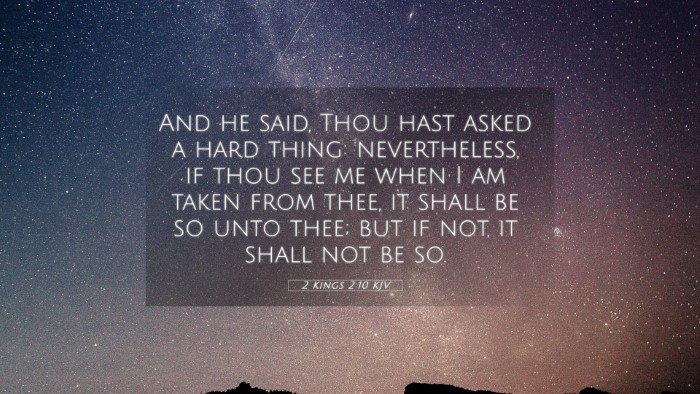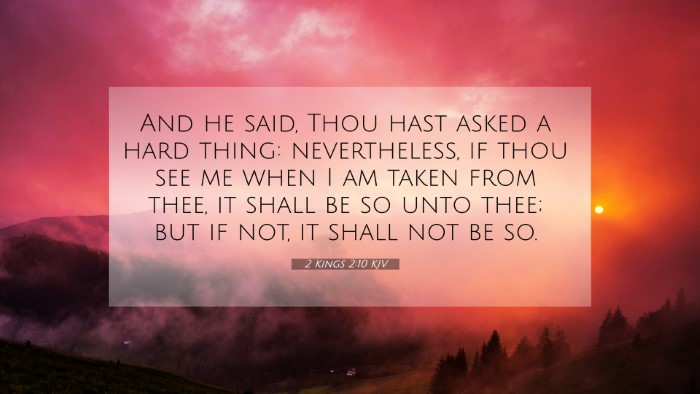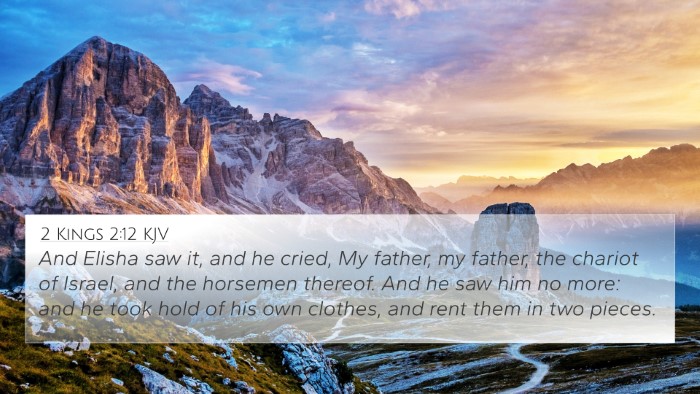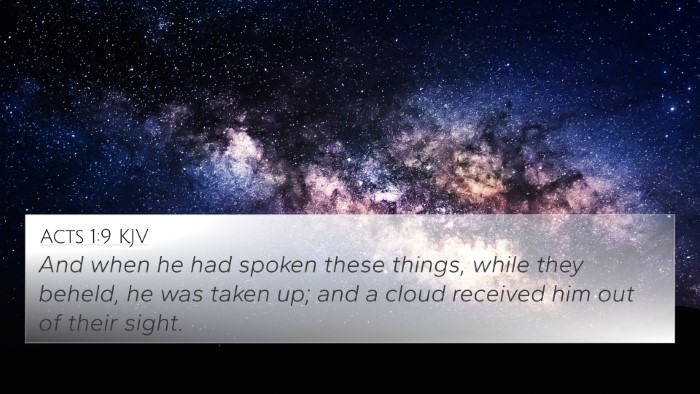Understanding 2 Kings 2:10: Insights and Interpretations
In 2 Kings 2:10, we encounter a profound moment in the life of the Prophet Elijah as he prepares to ascend into heaven. This verse states, “And he said, Thou hast asked a hard thing: nevertheless, if thou see me when I am taken from thee, it shall be so unto thee; but if not, it shall not be so.” This extraordinary statement carries deep theological implications and offers rich avenues for Bible verse cross-references and thematic connections throughout scripture.
Verse Context and Significance
Before exploring the verse in-depth, it is essential to understand the broader narrative. Elijah is on the verge of being taken away by God, and Elisha, his protégé, seeks a double portion of Elijah’s spirit, indicative of his desire for both empowerment and continuity of ministry.
The phrase “thou hast asked a hard thing” indicates the difficulty of Elisha’s request. It suggests that spiritual gifts and ministries are not easily attained and often come at a price. Elijah’s response also reflects the biblical theme that God’s blessings are conditional upon obedience and faithfulness. This principle resonates in various Bible verses that relate to each other, underscoring the importance of spiritual vigilance and readiness.
Key Insights from Public Domain Commentaries
- Matthew Henry: Henry emphasizes that Elisha's request was exceedingly ambitious, as it sought a greater measure of the prophetic spirit than anyone had previously received. He notes that the response signified the necessity of witnessing Elijah’s ascent as a test of faith.
- Albert Barnes: Barnes focuses on the importance of spiritual sight and understanding, conveying that to see Elijah taken up was not merely a physical act but also a spiritual one—signifying the recognition of God’s power in the transition of prophetic authority.
- Adam Clarke: Clarke discusses the significance of Elijah’s ascension and how Elisha’s ability to see him being taken up correlated with his future effectiveness as a prophet. This acknowledgment of divine transition aligns with God’s purposes unfolding in the nation of Israel.
Connections Between Bible Verses
2 Kings 2:10 can be cross-referenced with several other passages that resonate with its themes of calling, empowerment, and the continuity of God’s work through His chosen servants:
- 1 Kings 19:16: The anointing of Elisha as a prophet signifies the beginning of a new prophetic ministry.
- 2 Kings 2:9: This verse sets the stage for the request and hints at the prophetic impartation Elisha hoped to receive.
- Acts 1:8: The empowering of the apostles parallels the double portion request—the Holy Spirit empowers believers for ministry.
- Hebrews 11:1: This reflects the faith that undergirds Elisha’s request, emphasizing that faith is the assurance of things hoped for.
- Mark 1:11: God’s declaration at the baptism of Jesus parallels the significance of God's approval of His chosen servants.
- Matthew 28:20: The promise of God's presence resonates with Elisha’s experience as a continual theme throughout scripture.
- 2 Timothy 1:6-7: Paul encourages Timothy to fan into flame the gift of God, relating to the importance of spiritual empowerment.
Linking Bible Scriptures: A Comparative Analysis
The verse serves as a bridge between the Old Testament and the New, highlighting the continuity of God’s redemptive plan. The transition from Elijah to Elisha is reflective of a broader biblical motif where God raises leaders to guide His people, culminating in the ultimate leadership of Jesus Christ. By analyzing these comparative Bible verses, believers can glean insights into how God prepares and empowers His servants across generations.
Tools for Bible Cross-Referencing
Utilizing tools like a Bible concordance and Bible cross-reference guide can enhance one’s understanding of the intricate connections within scripture. Here are some effective cross-referencing Bible study methods for deeper engagement:
- Topical Studies: Grouping related verses on themes such as empowerment, obedience, and faith variously brings clarity and emphasis.
- Verse-by-Verse Analysis: Examining verses within their scriptural context fosters a thorough understanding of connections.
- Chain References: Following thematic links from one verse to another helps trace the development of ideas and doctrines.
Inter-Biblical Dialogue: Theological Implications
This verse encourages the exploration of inter-Biblical dialogue; how themes of prophetic authority, spiritual empowerment, and God’s grace are woven throughout scripture, facilitating believers’ understanding of their own spiritual journeys.
Conclusion: The Enduring Message of 2 Kings 2:10
In studying 2 Kings 2:10 through the lens of various public domain commentaries and scriptural connections, we discover an enduring truth: the pursuit of God’s call on our lives often requires faithfulness, vigilance, and a readiness to witness God’s work. As we connect this verse with others in the Bible, we see the overarching narrative of God’s redemptive plan and His unwavering commitment to empowering those He calls.
Bible Cross References Summary
To summarize, the related Bible cross-references highlighted throughout this commentary include:
- 1 Kings 19:16
- 2 Kings 2:9
- Acts 1:8
- Hebrews 11:1
- Mark 1:11
- Matthew 28:20
- 2 Timothy 1:6-7
By engaging with 2 Kings 2:10 and its surrounding context, believers can gain a deeper appreciation for the importance of spiritual mentorship and the legacy of faith passed down through generations.






